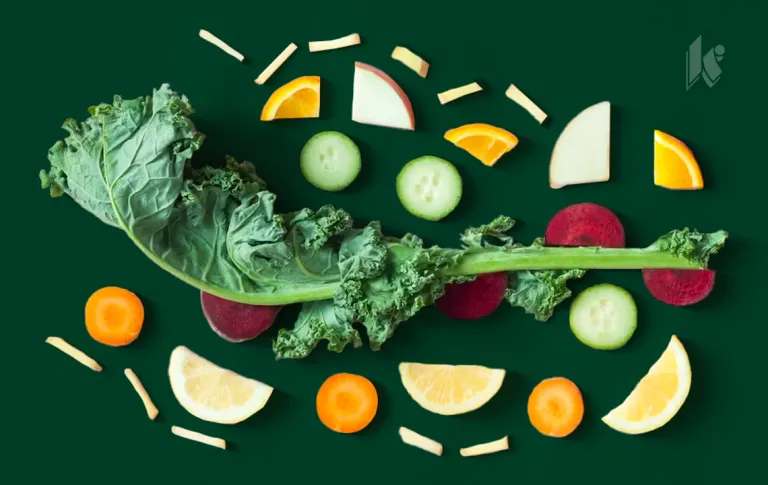
A balanced diet is always an important element of staying healthy, no matter how old you are. But as you grow and age, you need to make sure you’re still getting enough nutrients to maintain good health. How much of each nutrient, and how you get them, affects how beneficial they are in your diet.
Vitamins and minerals make up the essential nutrients everyone needs to stay healthy. A deficiency in any of them can lead to low energy levels, a weakened immune system, or lower functioning of vital organs and muscle groups. Below are the main vitamins and minerals, what they support in your body, and how to incorporate them into your diet.
Vitamins
- Vitamin A supports your immune system, important organs like your heart and lungs, and healthy vision. You can find it in eggs, dairy, organ meats, and green leafy and orange vegetables, like sweet potatoes and carrots.
- Vitamin C acts like an antioxidant, protecting your immune system and cells, helping wounds heal, and improving iron absorption. Citrus fruits are a huge source of vitamin C, but you can also find it in other fruits and vegetables, such as peppers and kiwifruit.
- Vitamin D helps you absorb calcium, an important mineral, and maintains your nerves and immune system. You can get vitamin D from the sun, but you won’t get enough from the sun alone. (Most Americans have a vitamin D deficiency for this reason.) Most milks, both dairy and plant-based, are fortified with vitamin D, and fatty fish is another excellent source.
- Vitamin E also acts as an antioxidant to protect your cells and immune system; it also helps prevent blood clots and carry out cell processes. Nuts, green vegetables, and vegetable oils are the primary sources for vitamin E.
- Vitamin K keeps your bones healthy and helps blood to clot when you have a cut. Green leafy vegetables are a good source for vitamin K, along with protein sources like meat, cheese, eggs, and soybeans.
- The eight B Vitamins do a lot! They help convert food into energy for your body, keep your blood and nerve cells healthy, promote metabolism and brain health, and are key for cell and prenatal development. They can be found mostly in meats and animal products, whole grains, and legumes. Vitamin B6 can also be found in starchy vegetables and some fruits, and Folate (vitamin B9) is present in leafy green vegetables and oranges as well.
Minerals
- Calcium is especially important for older adults because it strengthens your bones and teeth, which can weaken as you grow older. Calcium also supports your nervous system. Dairy products are the primary source of calcium, but many plant-based milks are now also fortified with calcium. Leafy vegetables are another good source.
- Magnesium helps to regulate blood sugar, blood pressure, and muscle and nerve functions. You can find it in nuts and legumes, leafy green vegetables, and some dairy products and fortified foods.
- Potassium helps many processes in your body, including heart and kidney functions. It is found in fruits, particularly dried apricots and prunes, along with lentils and beans, milk and yogurt, and meats.
Dietary Supplements
Some nutrients, like Vitamin D, B vitamins, and calcium, are key to maintaining your health as you age, and you may need more of them than you did when you were younger. It can sometimes be hard to get enough of these nutrients, especially if you follow a vegetarian diet. Dietary supplements (such as pills, capsules, or dissolvable powders) can be beneficial to incorporate for some people.
Ingesting more of a particular vitamin or mineral isn’t necessarily better; you can have too much of a good thing! Supplement doses may be too high for your needs, which will lead to wasting money on unnecessary supplements that your body won’t retain at best, and harmful health effects or reactions with prescription drugs at worst. Always consult with your doctor or a registered dietician before starting to take any supplements, even though they don’t usually require a prescription.
It’s important to remember that the best way to consume any nutrients—vitamins, minerals, or even antioxidants—is through food. A varied diet should provide you with most of the nutrients you need, plus other added benefits like fiber. Many foods, such as milk and dairy products or cereals, are now fortified with vitamins and minerals. Getting more essential nutrients can often be as simple as checking the labels on items you eat already.
A Balanced Diet for a Balanced Life
Kingsway’s cuisine offers a wide range of chef-prepared options to suit every palate and provide essential nutrients. We retain a registered dietician as part of our staff to ensure our meal offerings meet nutritional and dietary standards for seniors. Our dining staff work hard to ensure residents’ meals are healthy and tasty, no matter their nutritional needs.
Photo Credit: Dose Juice on Unsplash